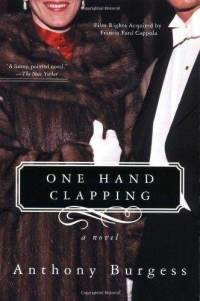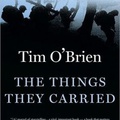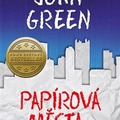Anthony Burgess: One Hand Clapping

One Hand Clapping is one of those novels I can re-read any number of times. It’s not one of my all-time favorites, it’s not one of those books which changed my personality or shaped my world-view, and I wouldn’t say that it’s a flawless, inimitable, fascinating, carefully plotted and executed masterpiece – but the character of the novel’s narrator and her mindless, casually ignorant, schoolgirlish story-telling style continues to grip my attention and always makes me gasp in wonder whenever I re-read the book.
The story is set in the 1950s, in Bradcaster, a boring small town in England. Janet and Howard Shirley live their simple, comfortable married life here. Their most striking feature is that they have no striking, remarkable features at all, their age and environment fully determine their way of life: they live in an average council flat, they go to their workplace everyday, they eat cooked food for lunch because that’s the way everyone does it, and cuddle up on the sofa at night to watch TV together – as it is, they enjoy their lives in their own way.
There’s one thing though which makes the Shirleys a little bit less than average – Howard’s unique and very powerful visual memory which enables him to learn the contents of whole encyclopedias just by glancing at their pages. Making use of his wonderful talent Howard enters a quiz show on TV and wins a whole lot of money. He decides to make the best of his wealth and buys everything money can buy – and then he draws the necessary conclusions from his experiences.
Although the real protagonist is Howard, the story is narrated by his wife, Janet, and she is (or seems to be) a fearfully ignorant narrator. Janet is a shallow, empty-headed, pretty-in-an-average-way woman who immediately buys the newest brand of chocolate cookies because she saw the ads on TV; a woman who tends to wonder whether she should put another log on the fire or brew a tea even in the most critical moments of her life; a woman whose motherly instincts only (but then immediately) arise when she sees a heart-warming commercial featuring a mother and her infant child. Janet is a woman conditioned by television, commercials, women’s magazines and the general expectations of society – a Cosmo girl in the 50s.
And it’s not only that beauty is in the eye of the beholder – the moral lesson is also in there: Janet is unable to grasp the meaning of Howard’s unusual thoughts, motivations and deeds, therefore the only conclusion she can come to is that poor Howard must have been driven crazy by his unique brain – and that’s that for her. Still, even though Janet is pretty dumb (to say the least), her obtuse reactions to Howard’s plans are strangely appropriate and acceptable. Of course any reader will easily understand against what Howard wants to revolt, still, his actions seem somewhat irresponsible, meaningless, futile and of no effect, so it’s no wonder that a person with Janet’s limited powers of comprehension will find them such an immensely big mystery.
By the way, it seems to me that Janet is, after all, not as dumb as she looks. Despite the fact that her vocabulary, immature personality, desires, thoughts, emotions and reactions all show the mind-numbing effects of television, it’s worth noting that she still retains the power to reflect upon herself. She continuously comments on her own ignorance and simplicity, she admits that due to her prettiness she doesn’t have to be clever because men will love her anyway, and she even reflects upon the fact that there’s such a huge amount of junk on TV. It seems to me that Janet is well aware of her strengths and her limitations, and at the end of the novel she even learns how to take the initiative and shape her life to fit her needs.
And this is the most frightening and satiric aspect of this novel – no matter how easy it is to justify Howard’s dissatisfaction and to understand his awkward attempt to change his life, those self-assured, assertive, narrow-minded and in a way dangerous people like Janet always manage to make sure that attempts like Howard’s end in failure and that the world remains the kind of cozy, lukewarm place where they feel at home.
The story is set in the 1950s, in Bradcaster, a boring small town in England. Janet and Howard Shirley live their simple, comfortable married life here. Their most striking feature is that they have no striking, remarkable features at all, their age and environment fully determine their way of life: they live in an average council flat, they go to their workplace everyday, they eat cooked food for lunch because that’s the way everyone does it, and cuddle up on the sofa at night to watch TV together – as it is, they enjoy their lives in their own way.
There’s one thing though which makes the Shirleys a little bit less than average – Howard’s unique and very powerful visual memory which enables him to learn the contents of whole encyclopedias just by glancing at their pages. Making use of his wonderful talent Howard enters a quiz show on TV and wins a whole lot of money. He decides to make the best of his wealth and buys everything money can buy – and then he draws the necessary conclusions from his experiences.
Although the real protagonist is Howard, the story is narrated by his wife, Janet, and she is (or seems to be) a fearfully ignorant narrator. Janet is a shallow, empty-headed, pretty-in-an-average-way woman who immediately buys the newest brand of chocolate cookies because she saw the ads on TV; a woman who tends to wonder whether she should put another log on the fire or brew a tea even in the most critical moments of her life; a woman whose motherly instincts only (but then immediately) arise when she sees a heart-warming commercial featuring a mother and her infant child. Janet is a woman conditioned by television, commercials, women’s magazines and the general expectations of society – a Cosmo girl in the 50s.
And it’s not only that beauty is in the eye of the beholder – the moral lesson is also in there: Janet is unable to grasp the meaning of Howard’s unusual thoughts, motivations and deeds, therefore the only conclusion she can come to is that poor Howard must have been driven crazy by his unique brain – and that’s that for her. Still, even though Janet is pretty dumb (to say the least), her obtuse reactions to Howard’s plans are strangely appropriate and acceptable. Of course any reader will easily understand against what Howard wants to revolt, still, his actions seem somewhat irresponsible, meaningless, futile and of no effect, so it’s no wonder that a person with Janet’s limited powers of comprehension will find them such an immensely big mystery.
By the way, it seems to me that Janet is, after all, not as dumb as she looks. Despite the fact that her vocabulary, immature personality, desires, thoughts, emotions and reactions all show the mind-numbing effects of television, it’s worth noting that she still retains the power to reflect upon herself. She continuously comments on her own ignorance and simplicity, she admits that due to her prettiness she doesn’t have to be clever because men will love her anyway, and she even reflects upon the fact that there’s such a huge amount of junk on TV. It seems to me that Janet is well aware of her strengths and her limitations, and at the end of the novel she even learns how to take the initiative and shape her life to fit her needs.
And this is the most frightening and satiric aspect of this novel – no matter how easy it is to justify Howard’s dissatisfaction and to understand his awkward attempt to change his life, those self-assured, assertive, narrow-minded and in a way dangerous people like Janet always manage to make sure that attempts like Howard’s end in failure and that the world remains the kind of cozy, lukewarm place where they feel at home.





